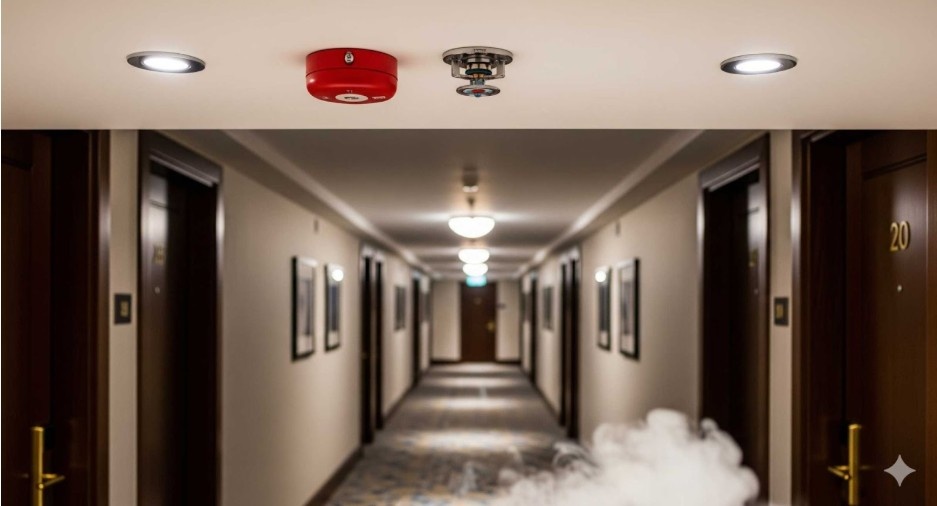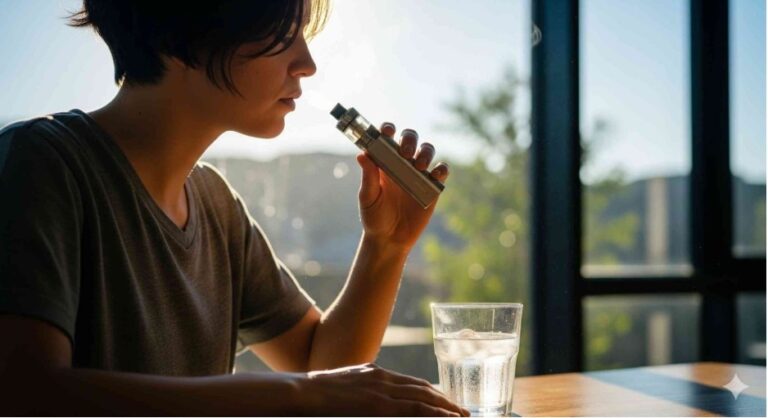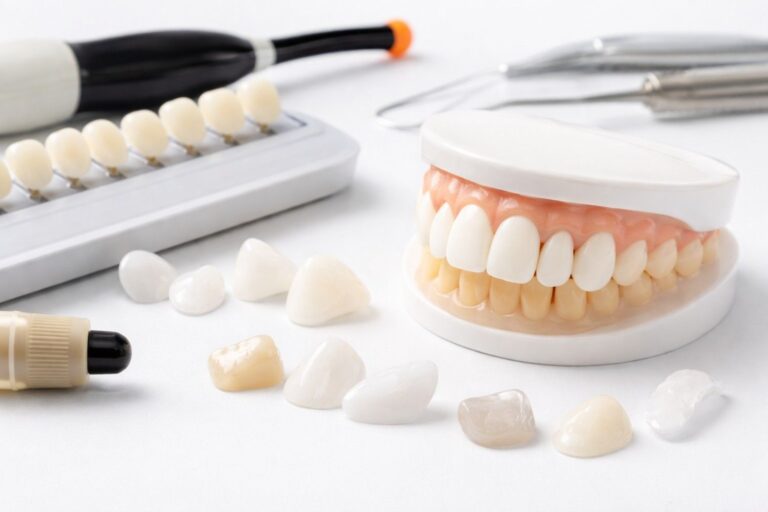I’ll be honest—my first experience testing whether do vapes make smoke alarms go off was less “scientific experiment” and more “oops.” I was in a hotel room, curious if my discreet vape would be a problem.
I took a slow draw, exhaled toward the window, and within seconds—beep, beep, beep. Let’s just say the front desk wasn’t amused, and I learned the hard way that vape clouds and smoke detectors don’t always get along.
So, can vaping actually set off alarms, or was I just unlucky? The answer is yes, it’s possible—but not always in the way you’d think. Let’s break down the tech, the risks, and how you can avoid setting off an impromptu fire drill.
Why Do Vapes Sometimes Trigger Smoke Alarms?
The reason vapes can set off alarms isn’t because they produce smoke—they don’t. Instead, vapes create an aerosol mist, often dense enough to mimic smoke particles in the air. Smoke detectors don’t know the difference between a burning candle and your cherry-flavored cloud; they just detect particles.
Most alarms use photoelectric sensors, which shine a light into a chamber. When enough particles scatter that light, the alarm thinks there’s smoke. Vape clouds, especially in small, poorly ventilated spaces, can scatter the light and trigger the same response.
Ionization alarms, another type, respond even more quickly to tiny particles. That’s why high-powered vapes or chain-vaping in one spot raises the chances of a false alarm.
Which Smoke Alarms Are Most Sensitive to Vape Clouds?
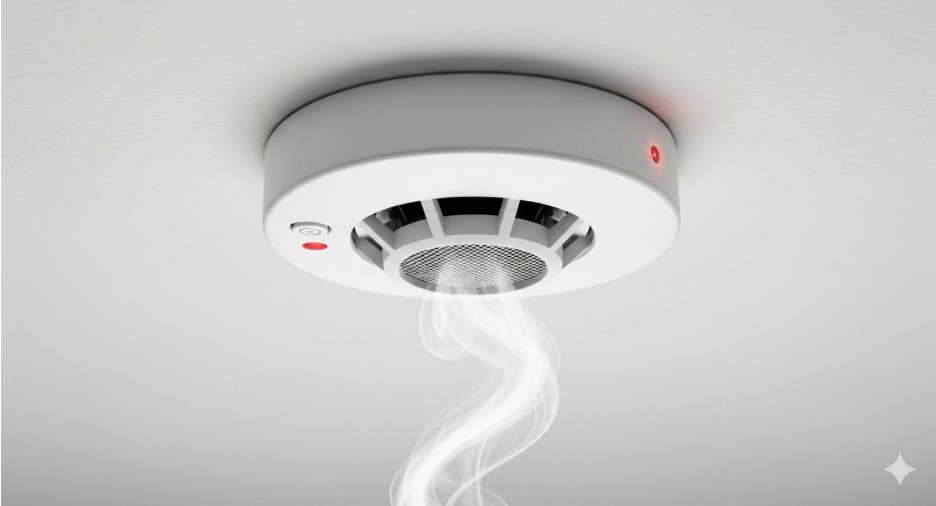
Not all alarms are created equal. If you’ve ever wondered why your friend vapes in their room without issues but you set off a hotel alarm in seconds, it comes down to the detector type.
- Photoelectric detectors: More common in homes and hotels. These are especially sensitive to vapor clouds because of how they scatter light beams.
- Ionization detectors: Found in many older systems. These detect even smaller particles, making them extremely reactive to vape aerosol.
- Heat detectors: Rare in homes, more common in industrial settings. These respond to temperature, so vaping won’t set them off.
Modern buildings sometimes use combo alarms, which means you’re doubling the chances of triggering one with a heavy vape session.
Do Vapes Make Smoke Alarms Go Off More Than Cigarettes?
You might assume cigarettes are the bigger culprit, but it’s not that simple. Cigarettes produce actual smoke from combustion, which detectors are designed to sense. Vapes, on the other hand, can sometimes be worse offenders in confined spaces.
That’s because vapor clouds are thicker, linger longer in stagnant air, and can set off photoelectric detectors more easily. Cigarette smoke dissipates differently and has a distinct smell, but both can cause alarms depending on the setup.
The irony? People often turn to vapes thinking they’re less obvious indoors, only to find themselves under the same flashing red light as traditional smokers.
How Can You Reduce the Risk of Setting Off a Smoke Alarm?
Here’s the practical bit—if you’re going to vape indoors, there are ways to minimize the risk of alarms going off. It’s not foolproof, but it’s better than standing in a hallway with neighbors glaring at you.
1. Stay near ventilation – Open a window, turn on a fan, or use an air purifier. Moving air thins out clouds before they reach a detector.
2. Exhale downward – Vapor rises just like smoke. Blowing down and away from detectors can reduce the chance of scattering light inside them.
3. Take smaller hits – Less vapor means fewer particles floating in the air.
4. Know your surroundings – Some hotels have hyper-sensitive systems connected directly to fire departments. A “false alarm” there could cost you a hefty fine.
At the end of the day, the safest option is simple: don’t vape where alarms are present. But let’s be real—if curiosity wins, at least be smart about it.
How-To: Test Your Setup Without Panic
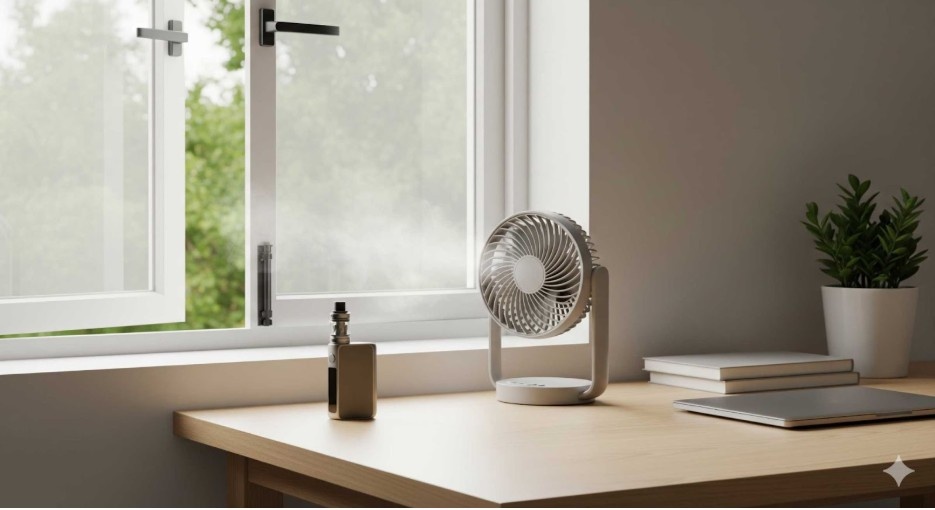
If you’re really curious about your own detector at home, here’s how to check responsibly:
1. Pick a safe space – Never try this in hotels, dorms, or shared housing. Stick to your own property where you won’t endanger others.
2. Create ventilation – Open windows and run fans so you’re not filling the room with vapor.
3. Take one small puff – Exhale near but not directly at the detector. Watch for any reaction.
4. Increase slowly – If nothing happens, try again with more vapor. You’ll quickly learn how sensitive your system is.
Remember, some alarms are tied into larger systems, so triggering them could alert local fire services. Always test responsibly and know your limits.
Frequently Asked Questions
1. Can vaping set off hotel smoke alarms?
Yes, absolutely. Hotels often use highly sensitive photoelectric alarms, and even one big puff can set them off. Many hotels fine guests for tampering with alarms or causing false triggers, so it’s not worth the risk.
2. Does vaping set off car smoke detectors?
Most cars don’t have smoke detectors, but some newer luxury models use cabin air sensors. While they won’t set off alarms, they may log air quality issues or cause the ventilation system to kick in automatically.
3. Will nicotine-free vapes still set off alarms?
Yes. The nicotine doesn’t matter—it’s the vapor particles themselves that detectors sense. Whether you’re using zero-nicotine or high-strength juice, the risk is the same.
4. Do fire sprinklers go off from vaping?
No. Sprinklers are triggered by heat, not particles. But if your vape sets off a connected smoke alarm, it could trigger a building-wide response that includes sprinklers. So, indirectly, yes—it’s possible.
Wrapping It Up With a Puff of Reality
So, do vapes make smoke alarms go off? Yes, they can—and often when you least expect it. Vapes might not create smoke, but detectors don’t care about the technical difference between aerosol and ash. They’re built to err on the side of caution.
My advice? Treat alarms with respect. They’re there to save lives, not spoil your session. If you’re going to vape, know the space, use ventilation, and avoid places where alarms are wired to fire services. Trust me, the embarrassment of a false alarm (or the fine that follows) isn’t worth the puff.
Stay curious, stay safe, and maybe keep that window cracked.



